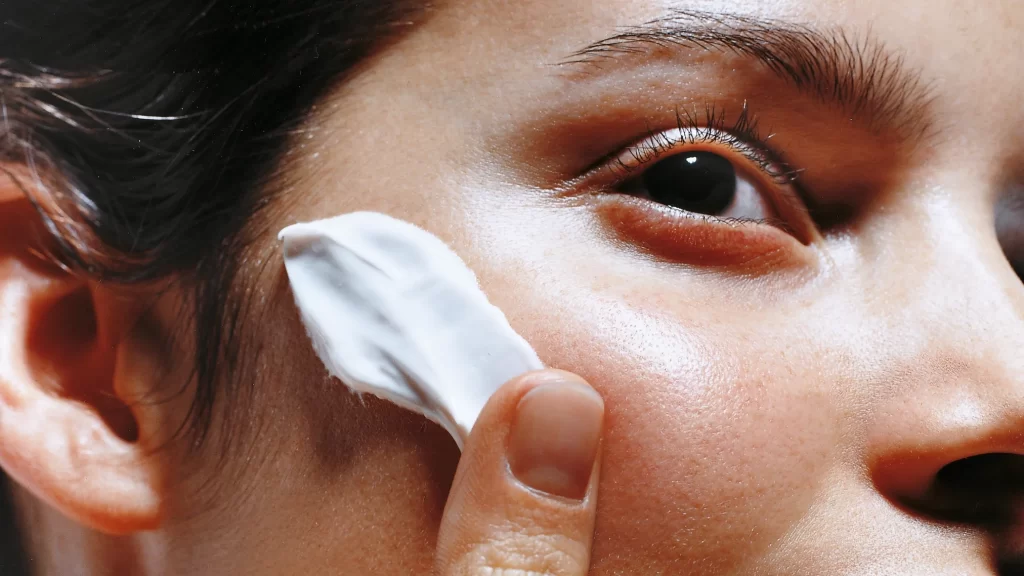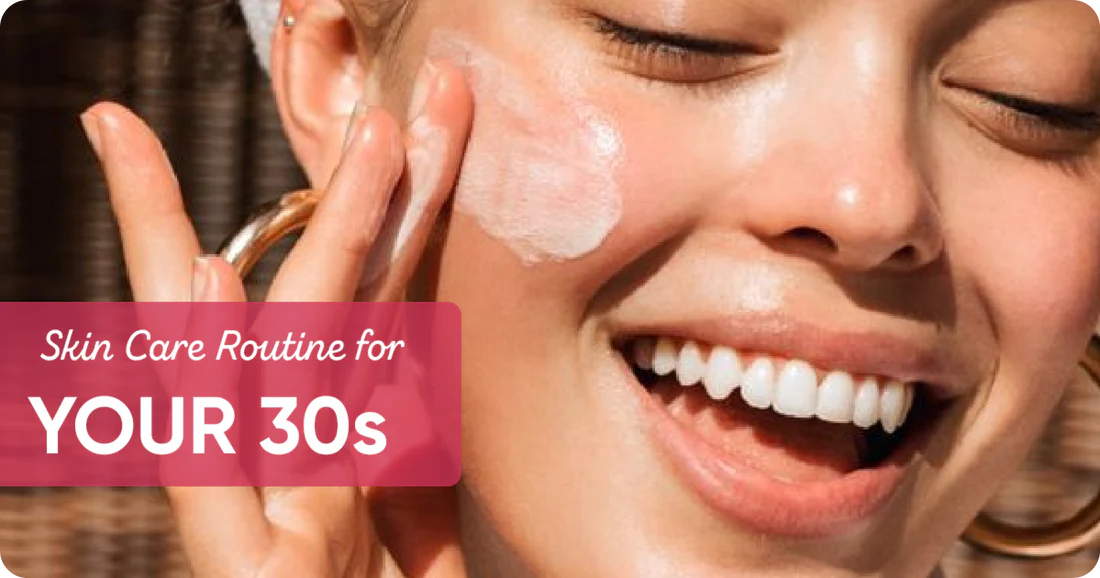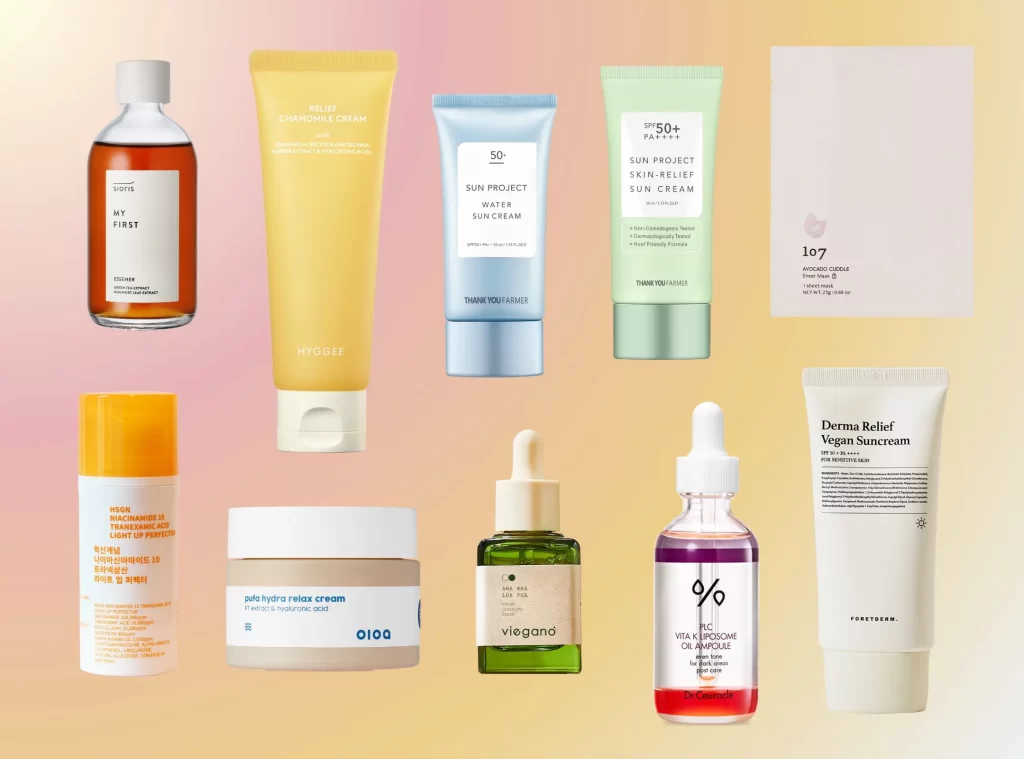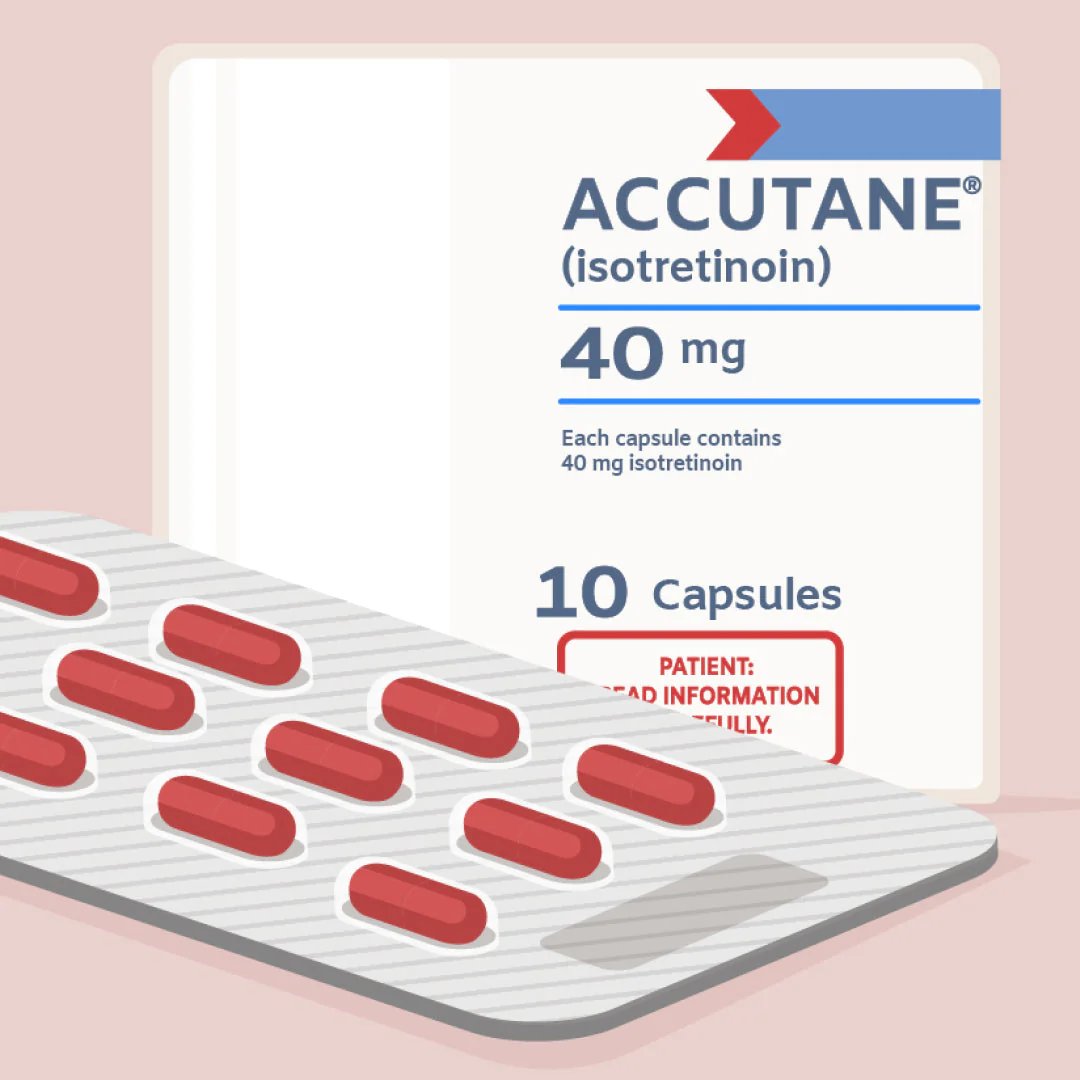At DermOnDemand, our team, led by Dr. Alicia Atkins provides expert guidance for every stage of skin health. Your 30s are a critical time to build habits that protect your skin against sun exposure, free radicals, and early signs of aging.
This article explains the dermatologist-recommended skin care routine for the 30s and offers practical advice tailored to your needs.
A dermatologist-recommended skin care routine for your 30s includes cleansing with a gentle product, moisturizing with ingredients like hyaluronic acid, and applying SPF 30 or SPF 50 daily to protect your skin from UV rays.
Dermatologists also advise using chemical exfoliants such as glycolic acid or salicylic acid a few times per week to maintain healthy skin and reduce dark spots. Eye creams and anti-aging treatments help target fine lines and wrinkles that may appear in this decade.
A balanced skincare regimen, combined with lifestyle habits and professional guidance, is the best way to support long-term skin health.
Key Takeaways
- A dermatologist-recommended skin care routine for your 30s centers on cleansing, moisturizing with hyaluronic acid, and applying SPF 30 or SPF 50 daily.
- Targeted treatments like retinoids, vitamin C, glycolic acid, and eye creams help address fine lines, dark spots, and early signs of aging.
- Affordable routines can still be effective by focusing on consistent use of cleansers, moisturizers, sunscreens, and budget-friendly chemical exfoliants.
- Lifestyle choices such as hydration, diet, stress control, and adequate sleep significantly influence skin health and support long-term results.
- Professional guidance from dermatologists, including prescription options, ensures the best skin care regimen for the 30s is personalized and medically safe.
Understanding Skin Changes in Your 30s
In your 30s, skin cell turnover slows, collagen production decreases, and fine lines and wrinkles may start to appear. A good skincare regimen must focus on hydration, daily sun protection, and targeted treatments for early signs of aging.
Dermatologists recommend layering lightweight moisturizers with hyaluronic acid to restore hydration and using eye creams to protect delicate under-eye skin. Adding SPF 30 or SPF 50 is essential to maintain healthy skin and prevent damage from UV rays.
How to start a skin care routine at 35 years old?
At 35, hormonal changes and sun exposure from earlier years may become more noticeable. Start by cleansing with gentle formulas suited to your skin type, then add chemical exfoliants like glycolic acid or salicylic acid to improve texture and reduce dark spots.
Include anti-aging serums with antioxidants to fight free radicals and repair early damage. Regular use of sunscreen for face remains the cornerstone to protect your skin and lower long-term risks such as skin cancers.
The Best Skin Care Routine for your 30s
Daily essentials: cleanse, moisturize, SPF
Every dermatologist agrees that the best skin care routine for the 30s begins with three steps: cleansing, moisturizing, and sun protection. Choose a cleanser appropriate for acne-prone skin or dry skin types. Apply a moisturizer with hyaluronic acid to maintain hydration.
Finish with a broad-spectrum sunscreen, ideally SPF 30 or SPF 50, to protect your skin from harmful UV rays.
- Cleanser (for acne-prone skin): CeraVe Foaming Facial Cleanser
- Cleanser (for dry skin): La Roche-Posay Toleriane Hydrating Gentle Cleanser
- Moisturizer (with hyaluronic acid): Neutrogena Hydro Boost Water Gel
- Sunscreen (SPF 30): EltaMD UV Daily SPF 30
- Sunscreen (SPF 50): La Roche-Posay Anthelios Melt-in Milk SPF 50
Best dermatologist-recommended products and tips for the 30s
Dermatologists recommend retinol-based serums, eye creams, and antioxidants like vitamin C to strengthen the skin barrier. Retinoids encourage collagen renewal, reducing fine lines and wrinkles over time.
Chemical exfoliants such as glycolic acid help brighten dull areas and improve skin tone. For acne-prone skin, salicylic acid can be incorporated to reduce breakouts and keep pores clear.
- Eye cream: CeraVe Eye Repair Cream (for hydration + dark circles)
- Retinol serum: SkinCeuticals Retinol 0.3 or Differin Gel (adapalene)
- Vitamin C antioxidant serum: SkinCeuticals C E Ferulic or La Roche-Posay Pure Vitamin C Serum
- Chemical exfoliant (glycolic acid): The Ordinary Glycolic Acid 7% Toning Solution
- Salicylic acid treatment (for acne-prone skin): Paula’s Choice Skin Perfecting 2% BHA Liquid
Best skin care routine for the 30s on a budget
Quality skin care does not always require expensive products. A simple skincare regimen with a gentle cleanser, a hydrating moisturizer, and sunscreen covers the essentials. Affordable chemical exfoliants and basic eye creams can be added as needed.
Focusing on consistency, not luxury, ensures you still protect your skin and maintain healthy skin in your 30s.
- Cleanser: Cetaphil Daily Facial Cleanser
- Moisturizer (with hyaluronic acid): Neutrogena Hydro Boost (drugstore version) or CeraVe Daily Moisturizing Lotion
- Sunscreen: Neutrogena Ultra Sheer Dry-Touch Sunscreen SPF 55
- Chemical exfoliant: The Inkey List Glycolic Acid Toner
- Eye cream: e.l.f. Holy Hydration! Eye Cream
Dermatologist-recommended daily routine checklist
- Cleanse with a gentle product twice a day.
- Moisturize with ingredients like hyaluronic acid.
- Apply SPF 30 or SPF 50 every morning.
- Exfoliate with chemical exfoliants two to three times weekly.
- Use eye creams or targeted anti-aging treatments.
Dermatologist-Recommended Regimens in Late 30s
Anti-aging skin care routine in your late 30s
An anti-aging focus should include retinol, antioxidants, and sunscreen. Retinol encourages skin renewal, reducing early wrinkles and supporting long-term collagen production. Vitamin C helps fade dark spots caused by sun exposure. Daily SPF ensures protection against UV rays, which are the main cause of skin cancers and premature aging.
Late 30s: deeper lines & dark spots
By your late 30s, deeper lines and pigmentation become more visible. Dermatologists recommend combining glycolic acid exfoliants with prescription options like stronger retinoids.
Dark spots on face may require targeted treatments with chemical exfoliants or in-office procedures. Protect your skin with consistent sunscreen use and maintain hydration with hyaluronic acid-based moisturizers.
Targeted Dermatologist Treatments
Fine lines and early wrinkles
Early wrinkles are common around the eyes and forehead. Retinol creams, peptides, and eye creams can smooth fine lines with regular use. Chemical exfoliants encourage skin renewal and improve texture. Preventing worsening damage requires daily sun protection with SPF 30 or higher.
Uneven tone and pigmentation
Dark spots and uneven tone often result from sun exposure and hormonal changes. Dermatologists recommend glycolic acid, vitamin C serums, and sunscreen as daily tools to protect your skin.
Professional treatments like chemical peels can also target pigmentation effectively. Maintaining a consistent skincare regimen ensures gradual improvement in tone and brightness.
Preventing and treating adult acne
Adult acne in the 30s is common, especially for acne-prone skin types. Salicylic acid and benzoyl peroxide remain effective topical treatments. Non-comedogenic moisturizers maintain balance without clogging pores.
Dermatologists may prescribe stronger medications for severe cases, ensuring both treatment and protection for long-term skin health.

Prescription options for the best skin care regimen
For patients with persistent concerns, prescription treatments are often necessary. Dermatologists may recommend higher-strength retinoids, topical antibiotics for acne, or hydroquinone for dark spots. At DermOnDemand, board-certified dermatologists like Dr. Alicia Atkins create personalized treatment plans reviewed within 24 hours.
Prescription care ensures the best skin care regimen is tailored to your unique skin type and medical history. This level of customization allows patients to achieve the best skin care regimen for the 30s in a safe and effective way.
Lifestyle Habits That Support Healthy Skin
Diet, hydration, and exercise
Nutrition directly impacts skin health. A balanced diet rich in antioxidants helps fight free radicals and supports collagen production. Drinking water maintains hydration, while exercise improves circulation, giving skin a natural glow. Together, these steps protect your skin and support long-term healthy skin.
Stress, sleep, and skin health
Stress can worsen acne prone skin and accelerate aging. Poor sleep reduces skin repair and makes fine lines and wrinkles more noticeable. Aim for seven to eight hours of rest to maintain balance. Managing stress through mindfulness or exercise helps protect your skin and improve overall health.
When to See a Dermatologist
Signs you need professional care
Seek professional help if over-the-counter routines fail to improve fine lines, acne, or pigmentation. Persistent redness, irritation, or new growths should be evaluated to rule out skin cancers. Dermatologists provide accurate diagnoses and safe treatment options. Early consultation prevents conditions from worsening and improves long-term outcomes.
Booking an online dermatologist consultation
Online care provides quick access to prescription treatments without waiting for in-office visits. At DermOnDemand, patients complete a secure form and receive a personalized plan reviewed by Dr. Alicia Atkins or another board-certified dermatologist. This process ensures you get expert advice tailored to your skin type and lifestyle.









